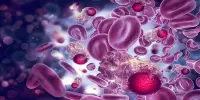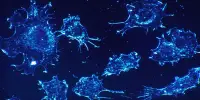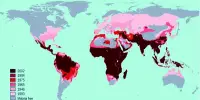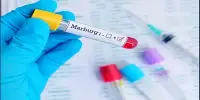There is mounting evidence that you can reduce your chance of developing cancer. While smoking and alcohol are the obvious offenders that can pave the way for the deadly condition, a new study surprisingly suggests that water may also be at fault. It’s crucial for your health to drink enough water each day, according to the Centers for Disease Control and Prevention. However, the research, which was written up in the journal Environmental Health Perspectives, showed that drinking tap and bottled water throughout an adult’s life may expose them to nitrate, which may increase their risk of developing prostate cancer. Fortunately, a balanced diet might be able to assist.
The Barcelona Institute for Global Health’s (ISGlobal) research sought to determine whether drinking waterborne nitrate and trihalomethanes (THMs) increased the risk of developing prostate cancer.
Two of the most frequent contaminants in potable water are nitrate and THMs.
When it rains, nitrate is frequently carried into aquifers and rivers by manure from intensive livestock husbandry and agricultural fertilizers.
Additionally, THMs are chemical substances that are created as a result of the chlorine-based water disinfection process.
THMs can enter the body through the skin and be inhaled while taking a shower, swimming in a pool, or doing chores, whereas nitrate can only enter the body through ingestion.
Although there is still very little evidence, long-term exposure to THMs has previously been linked to an increased chance of bladder cancer.
In order to assess the potential connection, 697 men with prostate cancer, including 97 aggressive tumors, were examined in Spain hospitals between 2008 and 2013.
A control group of 927 males, aged 38 to 85, who were cancer-free at the time of the study was also included by the research team.
Based on the participants’ past residences and the sort of water they drank, the researchers calculated the average exposure to these chemicals.
Unsettlingly, the results revealed that there was a stronger correlation between nitrate consumption and prostate cancer.
An aggressive prostate tumor and low- or medium-grade prostate cancer were both 1.6 times more likely to develop in participants with greater waterborne nitrate intake, which was measured as a lifetime average of more than 14 mg per day.
Carolina Donat-Vargas, the lead author of the study, said: “The risks associated with waterborne nitrate ingestion are already observed in people who consume water with nitrate levels below the maximum level allowed by European directives, which is 50 mg of nitrate per litre of water.”
These findings indicate a connection between water and prostate cancer, but they do not establish a causal link.
Donat-Vargas asserted that exposure to nitrates through potable water does not guarantee the development of prostate cancer.
The authors of the study also pointed out that this research only offers preliminary proof of the association, which needs to be confirmed by additional research.
The good news is that the researchers discovered nitrate in drinking water can have a negative impact reduced by consuming a lot of fiber, fruit, vegetables, and vitamin C.
The research also required the participants to complete a food frequency questionnaire, which asked about their personal dietary habits.
Only men who consumed less fiber, fruits, vegetables, and vitamin C were found in the research to have a link between ingested nitrate and prostate cancer.
According to Donat-Vargas, “fruits and veggies contain antioxidants, vitamins, and polyphenols that may prevent the formation of nitrosamines, which are compounds with the potential to cause cancer, in the stomach.
“Vitamin C has also demonstrated notable anti-tumor action. Additionally, fiber helps the intestinal bacteria, which defend against toxins obtained from food, such as nitrosamines.
















